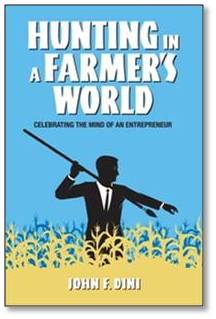As I have pointed out frequently in this space, the Baby Boomers’ entry into entrepreneurial business moved the core of the American economy from products to services. (see www.theboomerbust.com)
Multiple dynamics created the shift. Boomers were degreed at four times the rate of their parents, and not inclined to utilize their college educations doing physical labor. The rapidly expanding economy, ubiquitous automobiles, two income households and increasingly long work weeks provided both the disposable income and time compression that drove people to purchase services that their parents had once done for themselves. Service businesses had a low cost of entry and a short learning curve.
Now Boomer entrepreneurs are seeking to sell their service businesses, and finding few buyers. At the same time, the nation is waking up to the next surge of entrepreneurs, the Millennials. Slightly more numerous than the Boomers, they will be half of the workforce by 2020. Squeezed by a stagnant job market, they are going into business for themselves just like the Boomers before them.
Like the Boomers, they have skills that the previous generation lacked. In their case, it is based on technology. Like the weavers and carpenters of generations past, Millennials are starting businesses where they sell a skill that others don’t possess. The only difference is that the skill involves the knowledge of how to use information instead of building a tangible product.
 A service business is driven by the needs of the customers. Few people will pay to have their lawn mowed at 3:00 AM. Boomer service businesses, many with long hours and demands that eclipse family life, don’t appeal to the Millennials. They are gravitating to businesses that are low investment, don’t require brick and mortar, and can generate revenue when they choose, wherever they are. They assemble staff virtually; usually with other Millennials who provide a complimentary skill, but only for as long as it is needed.
A service business is driven by the needs of the customers. Few people will pay to have their lawn mowed at 3:00 AM. Boomer service businesses, many with long hours and demands that eclipse family life, don’t appeal to the Millennials. They are gravitating to businesses that are low investment, don’t require brick and mortar, and can generate revenue when they choose, wherever they are. They assemble staff virtually; usually with other Millennials who provide a complimentary skill, but only for as long as it is needed.
Boomers are distressed at the disappearance of the Mom and Pop store. They decry the loss of high-touch service to Internet competitors and big boxes. The Millennials don’t care. It’s not who you know, it’s what you know.
Hunting in a Farmer’s World: Celebrating the Mind of an  Entrepreneur, is an ownership book, not a management book. “John Dini’s writing is crisp, peppered with good data and concise, pointed stories, revealing how deeply he knows the head, heart and guts of entrepreneurs.” (Read more reviews)
Entrepreneur, is an ownership book, not a management book. “John Dini’s writing is crisp, peppered with good data and concise, pointed stories, revealing how deeply he knows the head, heart and guts of entrepreneurs.” (Read more reviews)
